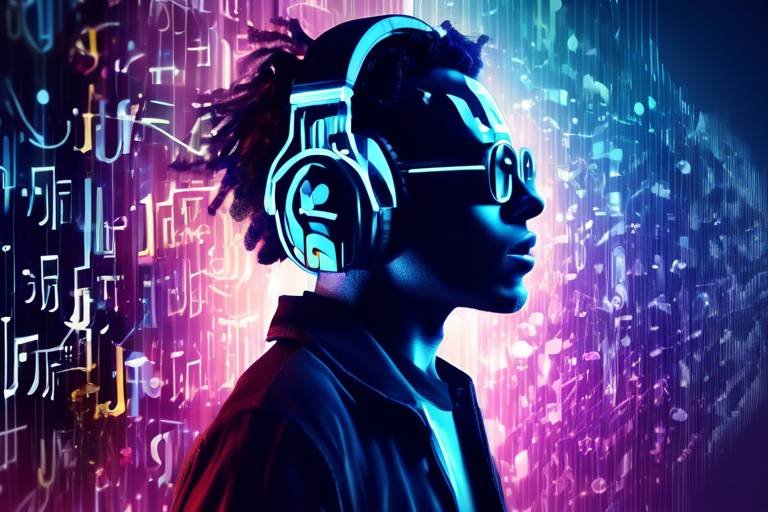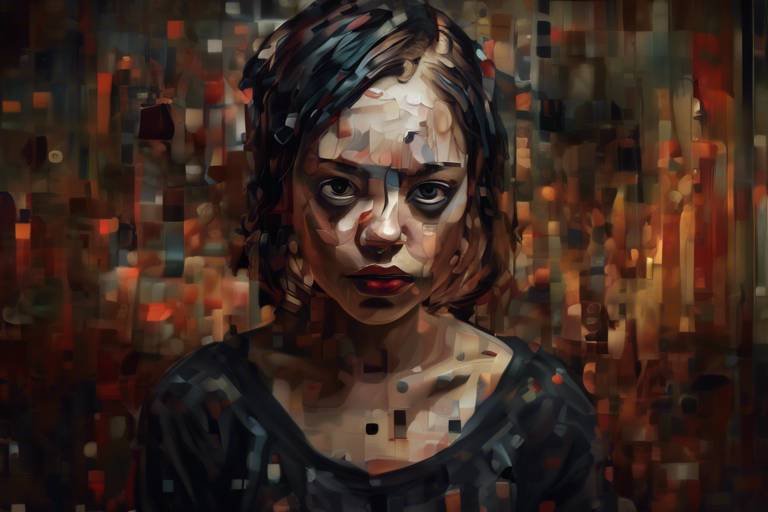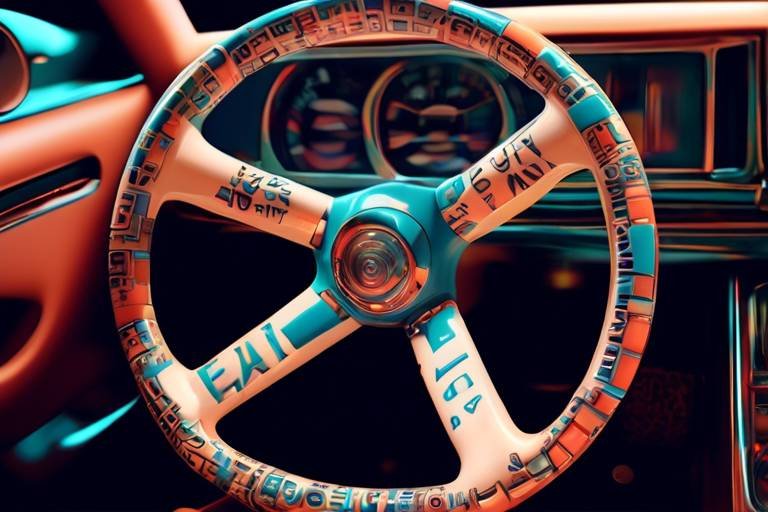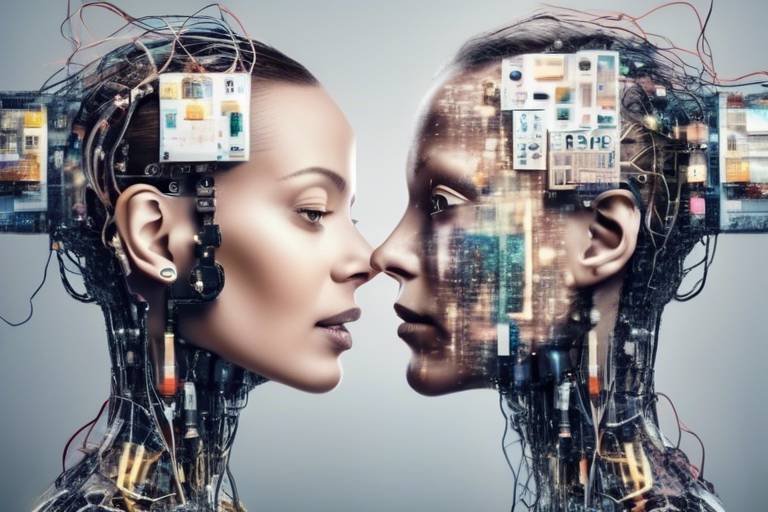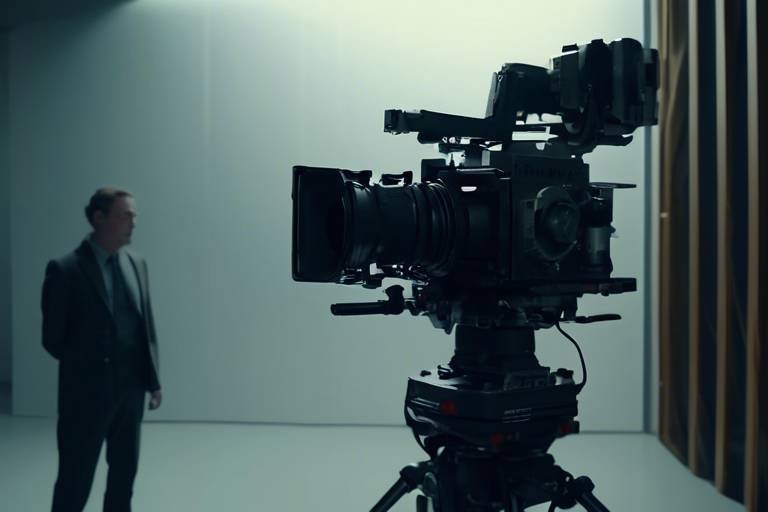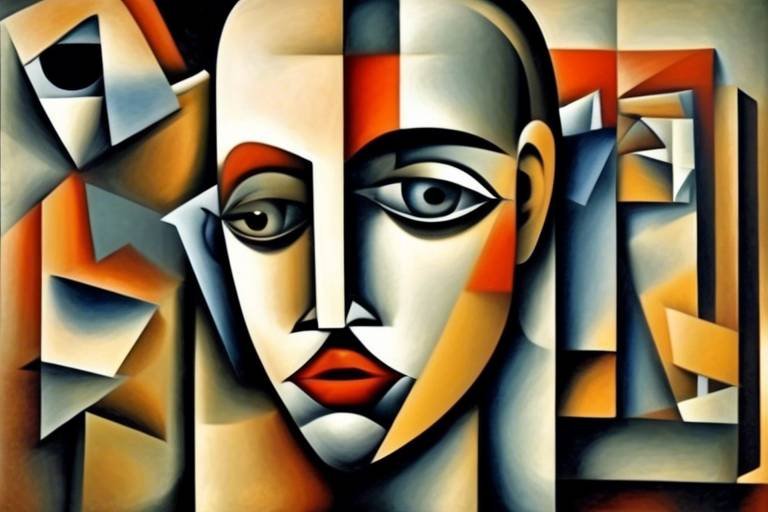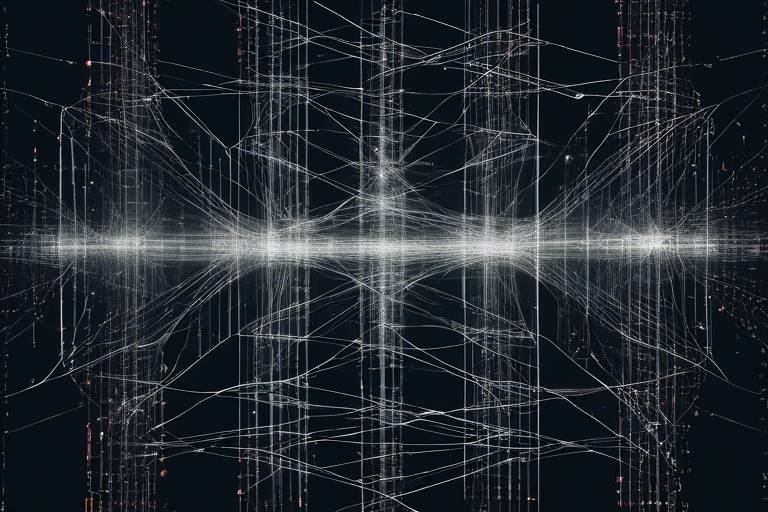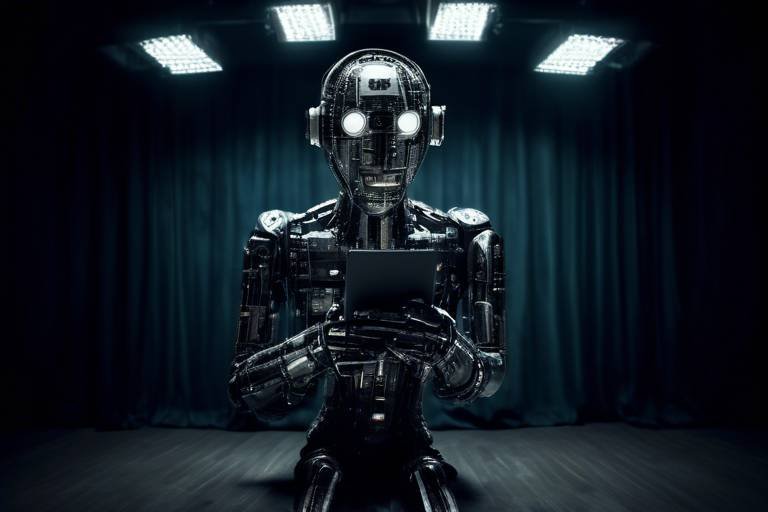The Future of Music Production with AI
The music production landscape is undergoing a remarkable transformation thanks to the rise of artificial intelligence. Gone are the days when musicians relied solely on traditional methods and tools to create, mix, and distribute their music. Today, AI is not just a buzzword; it’s a game-changer that enhances creativity, streamlines processes, and opens up new avenues for artists and producers alike. Imagine a world where your favorite artist collaborates with an AI to produce a track that resonates with your emotions, or where an algorithm crafts melodies that inspire a new generation of musicians. This is not science fiction; this is the future of music production, and it’s unfolding right before our ears.
As we dive deeper into this exciting realm, we’ll explore the various facets of AI in music, from composition and sound design to automated mixing and personalized experiences. The implications of these advancements are profound, not only for artists but for the entire music industry. So, whether you’re a seasoned producer, an aspiring musician, or just a fan of good tunes, buckle up! The journey into the future of music production with AI is about to begin.
Have you ever wondered how some of the most captivating melodies are born? With AI algorithms at the helm, the process of composing original music is evolving at an astonishing pace. These intelligent systems can analyze vast amounts of musical data, learning patterns and structures that define various genres. The result? AI can generate melodies and harmonies that not only challenge traditional songwriting methods but also inspire musicians to explore new creative avenues. Imagine a songwriter sitting down with an AI companion that suggests chord progressions and lyrical themes, sparking a wave of inspiration. This synergy between human creativity and machine learning is reshaping the way music is created.
Sound design has always been a crucial aspect of music production, but AI is taking it to a whole new level. Thanks to advanced algorithms, producers can now create unique audio effects and instruments that expand their sonic palette. Picture this: you’re in a studio, and instead of relying on conventional sounds, you have the ability to design intricate audio textures that haven’t been heard before. This revolution in sound design empowers producers and sound engineers to push boundaries and experiment like never before. With AI, the possibilities are virtually limitless, leading to a fresh wave of innovation in the industry.
Mixing and mastering are often seen as the technical backbone of music production, but they can also be daunting tasks for many. Enter AI tools that automate these processes, making it easier for producers to achieve professional-quality sound without needing extensive technical know-how. Imagine being able to focus on your creativity while an AI assistant fine-tunes your tracks, balancing levels, and applying effects with precision. This not only improves efficiency but also democratizes music production, allowing more artists to bring their visions to life without being held back by technical barriers.
In a world where we’re constantly bombarded with choices, personalization is key. AI is revolutionizing how we experience music by tailoring playlists and recommendations based on listener preferences and behaviors. Think about it: have you ever been amazed by how a streaming service seems to know exactly what you want to listen to next? This is the magic of AI at work, enhancing audience engagement and satisfaction. By analyzing data, AI can curate experiences that feel uniquely tailored to each listener, creating a deeper connection between artists and fans.
The relationship between musicians and AI is evolving into a fascinating collaboration. Artists are increasingly embracing AI as a creative partner, blending human artistry with machine learning to produce innovative and captivating music. This collaboration can take many forms, from AI-generated suggestions during songwriting sessions to using AI to create immersive soundscapes. The fusion of human emotion and machine precision results in a rich tapestry of sound that resonates with audiences on multiple levels.
While the potential of AI in music production is exciting, it also raises important ethical questions. Issues surrounding copyright, ownership, and the impact on human creativity and employment in the industry must be addressed. As AI becomes more integrated into the creative process, who owns the rights to the music created? How do we ensure that human artists are fairly compensated for their contributions? These are critical conversations that the music industry must engage in as we navigate this brave new world.
Marketing in the music industry is also being reshaped by AI. By utilizing data analytics and consumer insights, artists and labels can optimize their promotional efforts and reach target audiences more effectively. Imagine a world where your favorite band’s new album is marketed directly to you based on your listening habits and preferences. AI-driven marketing strategies not only enhance visibility but also create more meaningful connections between artists and their audiences.
Live music experiences are being transformed by AI, enhancing the audience experience through interactive elements and real-time sound manipulation. Imagine attending a concert where the music adapts to the crowd’s energy, creating a unique experience every time. AI can analyze audience reactions and adjust the performance accordingly, pushing the boundaries of traditional concerts and making each show unforgettable.
As we look to the future, the possibilities for AI in music production are endless. We can speculate about new genres emerging from AI collaborations, advancements in technology that further blur the lines between human and machine, and how these changes might redefine the music industry landscape. The future is bright, and as AI continues to evolve, so too will the music we love.
- Can AI truly replace human musicians? While AI can assist in the creative process, it cannot replicate the emotional depth and unique perspectives that human musicians bring to their art.
- How does AI influence music recommendations? AI analyzes user data and listening habits to provide personalized music recommendations that enhance user experience.
- What are the ethical concerns surrounding AI in music? Ethical concerns include copyright issues, ownership rights, and the potential impact on employment in the music industry.
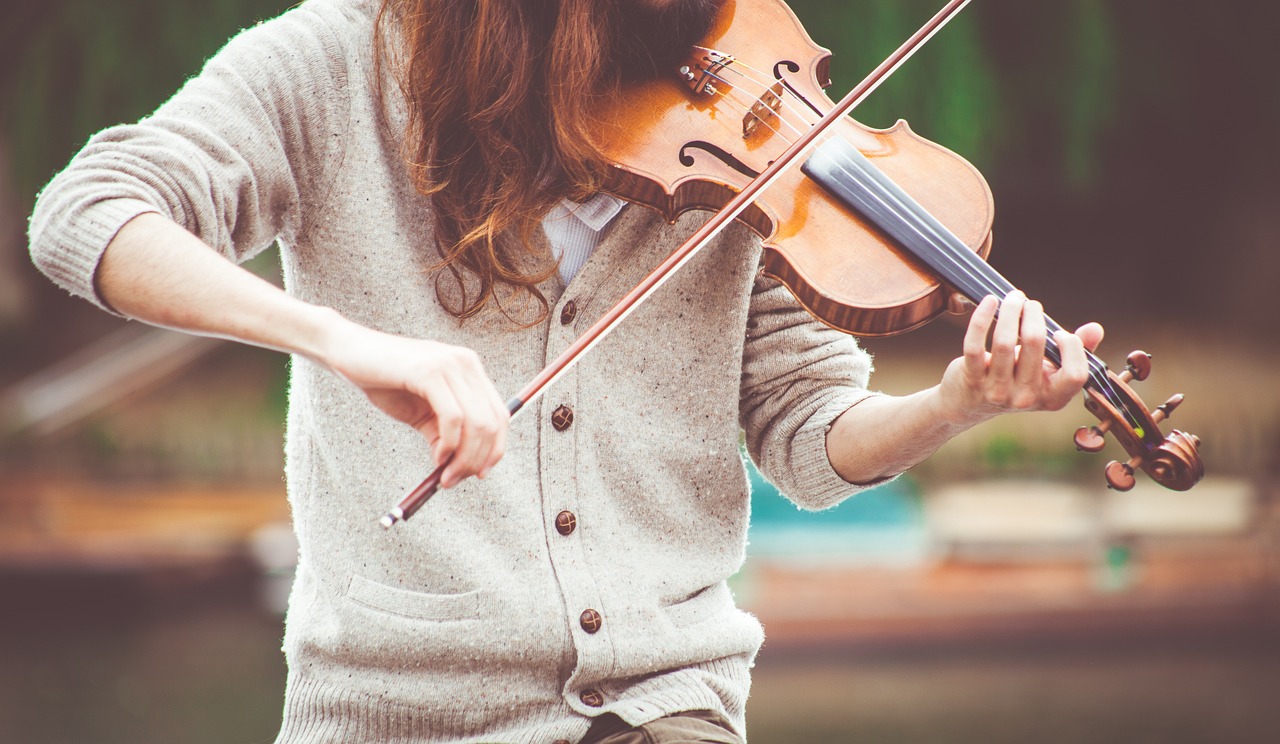
AI in Composition
Have you ever wondered how artificial intelligence (AI) is changing the way we create music? It's not just a futuristic concept anymore; AI is actively reshaping the landscape of music composition. Imagine a world where algorithms can generate original melodies and harmonies that challenge the traditional methods of songwriting. This isn't science fiction—it's happening right now!
AI algorithms can analyze vast amounts of data from existing music to identify patterns and structures that make a song appealing. They can then use this information to compose new pieces that capture the essence of various genres. For instance, AI can take the emotional depth of a Beethoven symphony and blend it with the rhythmic energy of a modern pop hit. The result? A unique composition that resonates with listeners on multiple levels.
One of the most exciting aspects of AI in composition is its ability to inspire musicians. Instead of viewing AI as a replacement for human creativity, think of it as a collaborator that opens up new creative avenues. Musicians can input their ideas into AI software, which can then suggest variations, harmonies, or even entirely new sections of a song. This collaborative process can lead to unexpected and innovative results that might not have been conceived by a human alone.
For example, platforms like AIVA (Artificial Intelligence Virtual Artist) allow users to create music across various styles by leveraging AI's analytical capabilities. Users can select a genre, mood, or even specific instruments, and AIVA will generate compositions that fit those parameters. It’s like having a co-writer who never runs out of ideas!
But how does this all work? Here’s a simplified breakdown of the process:
| Step | Description |
|---|---|
| Data Analysis | AI analyzes existing music to identify patterns, structures, and emotional cues. |
| Composition Generation | Using learned patterns, AI generates original melodies and harmonies. |
| Human Collaboration | Musicians can input their ideas and collaborate with AI for further development. |
| Finalization | The musician finalizes the composition, adding personal touches and modifications. |
While the possibilities are endless, there are also challenges to consider. Some critics argue that relying on AI for composition could dilute the emotional essence that human musicians bring to their work. However, it's essential to recognize that AI is simply a tool—one that can enhance creativity rather than replace it. Just like a painter uses brushes and colors, musicians can use AI to paint their sonic landscapes.
In conclusion, AI is not just a passing trend; it's a powerful force transforming music composition. By embracing these technologies, artists can explore uncharted territories in their creative processes, leading to a future where human artistry and machine intelligence coexist harmoniously. So, whether you're a seasoned musician or a budding songwriter, the question remains: are you ready to collaborate with AI and redefine the way we make music?
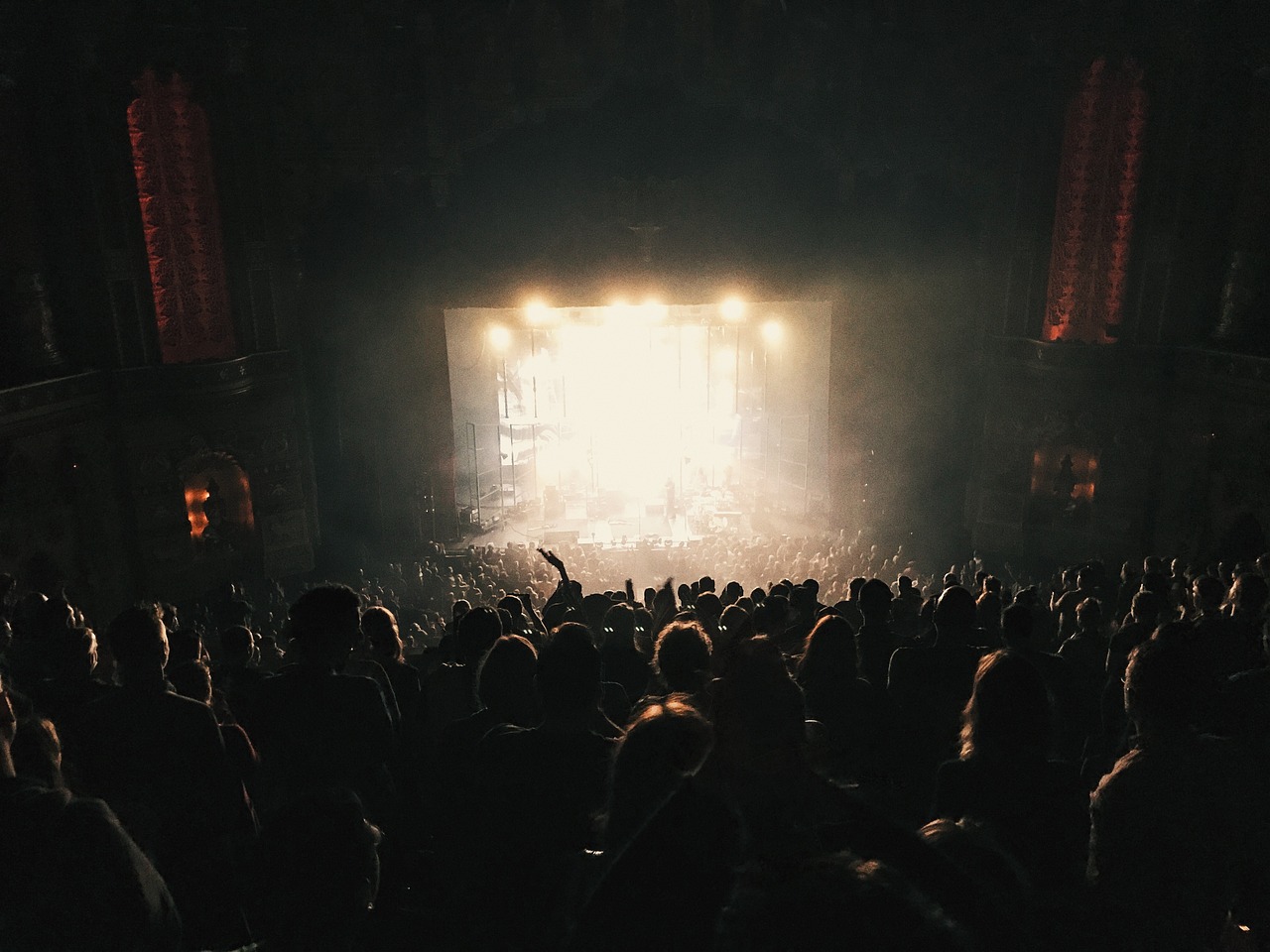
Sound Design Revolution
The sound design landscape is undergoing a remarkable transformation thanks to the advent of artificial intelligence. Imagine a world where the boundaries of creativity are pushed further than ever before, where sound engineers and producers are equipped with tools that not only enhance their capabilities but also inspire new artistic expressions. AI is at the forefront of this revolution, creating unique audio effects and instruments that expand the sonic palette available to musicians. It’s like having a limitless toolbox at your disposal, allowing you to craft sounds that were previously unimaginable.
One of the most exciting aspects of AI in sound design is its ability to analyze vast amounts of audio data. By learning from existing tracks, AI can generate new sounds that maintain the essence of what makes music resonate with listeners. This process can lead to the creation of entirely new genres or sub-genres, as artists experiment with the novel sounds produced by AI algorithms. For instance, AI can create intricate soundscapes that blend various styles—from classical to electronic—resulting in a rich tapestry of auditory experiences.
Furthermore, AI-driven tools can assist in the development of custom instruments. Imagine a synthesizer that evolves based on your playing style or a drum machine that learns your rhythm patterns and generates beats that complement your unique sound. This level of personalization in sound design allows artists to truly express their individuality, making each piece of music a reflection of their creative vision.
Let’s take a look at some of the key advancements in AI sound design:
- Generative Sound Design: AI can create entirely new sounds by analyzing existing audio and synthesizing unique waveforms.
- Adaptive Audio Effects: Effects can change in real-time based on the music being played, offering dynamic sound manipulation.
- Smart Sampling: AI can identify and extract interesting elements from audio samples, enabling producers to create fresh sounds from old recordings.
Additionally, AI can enhance the workflow of sound designers by automating repetitive tasks. This means that sound engineers can spend less time tweaking parameters and more time focusing on the creative aspects of their projects. With AI handling the mundane, artists can explore their creativity without the constraints of traditional sound design processes. It’s like having a personal assistant who takes care of the nitty-gritty, allowing you to focus on the big picture.
As we look towards the future, the potential of AI in sound design is boundless. The technology is evolving rapidly, and with it comes the opportunity for artists to explore uncharted territories in music production. The integration of AI in sound design not only enhances the quality of music but also democratizes the creative process, making it accessible to aspiring musicians who may lack extensive training or resources. In this new era, creativity knows no bounds, and the only limit is the imagination of the artist.
| Question | Answer |
|---|---|
| How does AI enhance sound design? | AI enhances sound design by creating unique sounds, automating repetitive tasks, and offering personalized instruments that adapt to the artist's style. |
| Can AI create music on its own? | Yes, AI can compose music by analyzing existing tracks and generating new melodies and harmonies, but it often works best in collaboration with human musicians. |
| What are the ethical considerations of using AI in music? | Ethical considerations include copyright issues, ownership of AI-generated music, and the impact of AI on human creativity and employment in the music industry. |

Automated Mixing and Mastering
In the ever-evolving world of music production, have emerged as game-changers, allowing producers to focus more on creativity and less on technical hurdles. Imagine having a virtual assistant that can analyze your tracks, suggest improvements, and even apply those changes in real-time. Sounds like science fiction, right? But it's happening now, thanks to artificial intelligence.
Automated mixing tools leverage sophisticated algorithms to identify the best audio settings for each track. They analyze frequency ranges, dynamics, and even the emotional tone of the music. This means that whether you're a seasoned professional or a budding artist, you can achieve a polished sound without needing an extensive background in audio engineering. For instance, AI can automatically adjust levels, apply EQ, and compress sounds to create a balanced mix that resonates with listeners.
But how does it actually work? Let's break it down:
- Analysis: The AI listens to your mix and evaluates each individual track's characteristics.
- Suggestions: Based on its analysis, it provides recommendations for adjustments, such as volume levels or panning positions.
- Execution: With your approval, the AI implements these changes, resulting in a cohesive mix.
One of the most fascinating aspects of automated mixing is its ability to learn from previous mixes. The more you use it, the better it becomes at understanding your unique style and preferences. This personalized approach means that over time, you can expect increasingly refined results that align with your artistic vision.
Now, let’s talk about mastering. This is the final step in music production, where the mixed track is polished and prepared for distribution. Automated mastering services analyze the mixed track and apply finishing touches, such as maximizing loudness while preserving dynamic range. They ensure that your music sounds great on all platforms, from streaming services to vinyl records. It's like having a master engineer at your fingertips, ready to take your music to the next level.
However, while the benefits of automated mixing and mastering are significant, it's essential to remember that these tools are not meant to replace human touch. They are designed to enhance the creative process. Think of it like having a smart assistant who can handle routine tasks while you focus on what you do best: creating amazing music.
To illustrate the effectiveness of these tools, consider the following table comparing traditional mixing and mastering versus automated processes:
| Feature | Traditional Mixing & Mastering | Automated Mixing & Mastering |
|---|---|---|
| Time Required | Hours to days | Minutes to hours |
| Technical Knowledge Needed | High | Low |
| Cost | Higher (studio fees, engineer fees) | Lower (subscription or one-time fee) |
| Personalization | Limited to the engineer's style | Adapts to user preferences over time |
In conclusion, the rise of automated mixing and mastering tools is revolutionizing the music production landscape. They not only save time and reduce costs but also empower artists to produce high-quality music without needing extensive technical skills. As we look to the future, these tools will continue to evolve, making music production more accessible and exciting for everyone involved.
- What is automated mixing? Automated mixing uses AI algorithms to analyze and adjust audio tracks, streamlining the mixing process.
- Can automated mastering replace a human engineer? While automated mastering can achieve impressive results, it is best used as a complement to human expertise.
- Are automated mixing tools expensive? Many automated mixing services offer affordable subscription models or one-time fees, making them accessible to a wide range of users.
- How does AI learn my style? The more you use automated mixing tools, the more they learn from your preferences and adapt their suggestions accordingly.
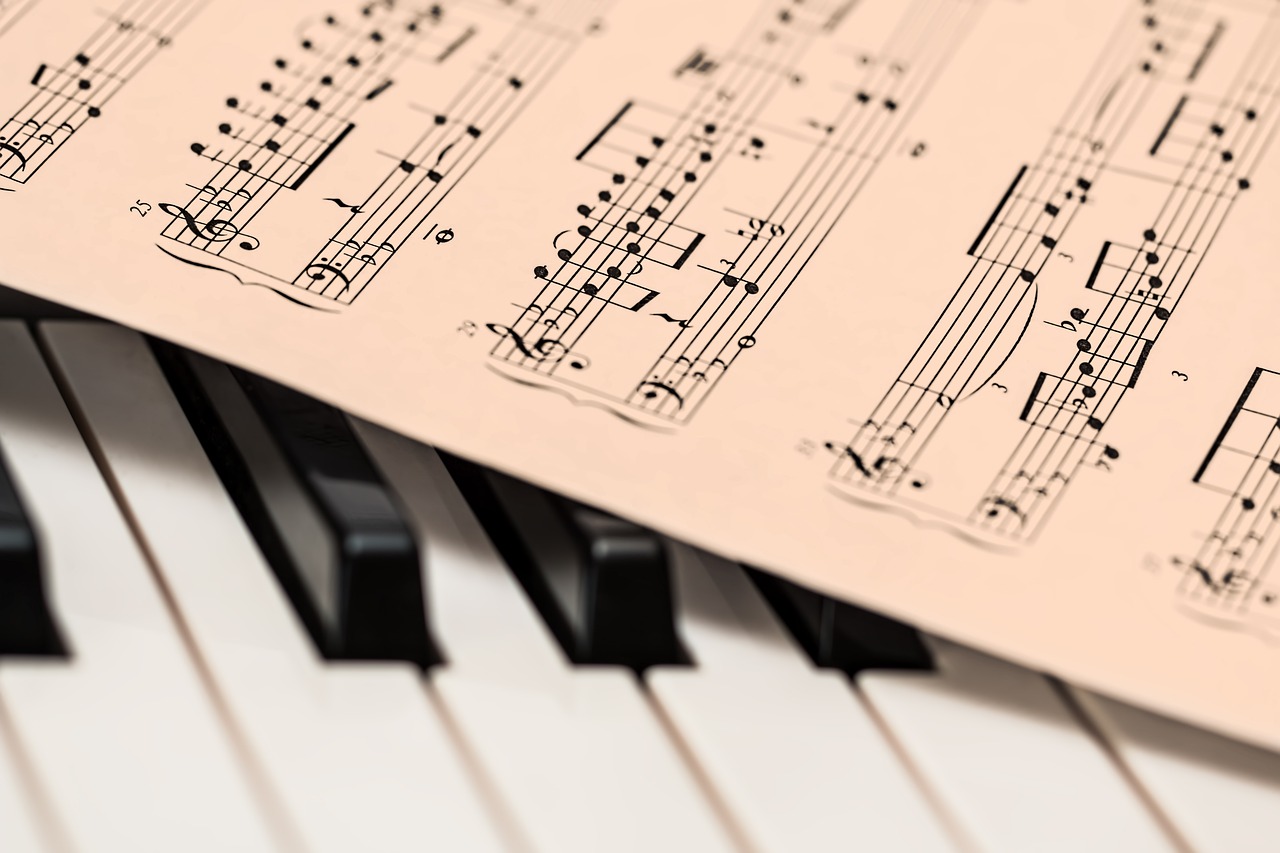
Personalized Music Experiences
In today's fast-paced digital world, personalization has become the name of the game, especially in the realm of music. Imagine waking up to a playlist that feels like it was curated just for you, reflecting your mood, your activities, and even the time of day. This is not just a dream anymore; it's a reality brought to life by the power of artificial intelligence. AI algorithms analyze vast amounts of data, including your listening habits, to create a uniquely tailored musical experience that resonates with you on a personal level.
AI's ability to understand and predict listener preferences has revolutionized how we consume music. Streaming services like Spotify and Apple Music utilize advanced machine learning techniques to recommend songs that fit your taste. But how exactly does this work? The process can be broken down into a few key components:
- Data Collection: AI collects data from user interactions, including what songs are played, skipped, or saved.
- Pattern Recognition: Algorithms identify patterns in listening behaviors to determine what genres, artists, and songs are favored.
- Recommendation Generation: Based on the recognized patterns, AI generates personalized playlists that are continually updated according to your evolving tastes.
This tailored approach not only enhances the listening experience but also encourages deeper engagement with music. For instance, when you discover new artists that align with your preferences, it feels like a serendipitous moment, almost like meeting a friend you never knew you had. Moreover, AI can even help in creating customized radio stations that adapt in real-time to your feedback, providing a seamless flow of music that feels organic and alive.
But the personalization doesn't stop at playlists. AI is also making waves in the realm of live music experiences. Imagine attending a concert where the setlist is dynamically adjusted based on the audience's reactions! This kind of interactive experience is becoming increasingly feasible, as AI can analyze crowd energy and preferences during performances, creating a truly immersive atmosphere.
As we look to the future, the potential for personalized music experiences is boundless. With advancements in AI technology, we can expect even more sophisticated algorithms that not only cater to individual tastes but also predict future preferences. This evolution means that artists and producers will have to adapt their strategies, ensuring that their music resonates with listeners on a deeper level.
In conclusion, the integration of AI in creating personalized music experiences is not just a trend; it's a fundamental shift in how we interact with music. As technology continues to evolve, the possibilities for enhancing our musical journeys are endless. Are you ready to embrace this new era of personalized music?
- How does AI personalize music recommendations? AI analyzes your listening history and patterns to suggest songs and artists that match your taste.
- Can AI create original music? Yes, AI can compose music by learning from existing songs and generating new melodies and harmonies.
- Will AI replace human musicians? While AI can assist in music creation, it is unlikely to replace the unique creativity and emotional depth that human musicians provide.
- How does AI impact live performances? AI can enhance live shows by adapting setlists in real-time based on audience reactions, creating a more engaging experience.
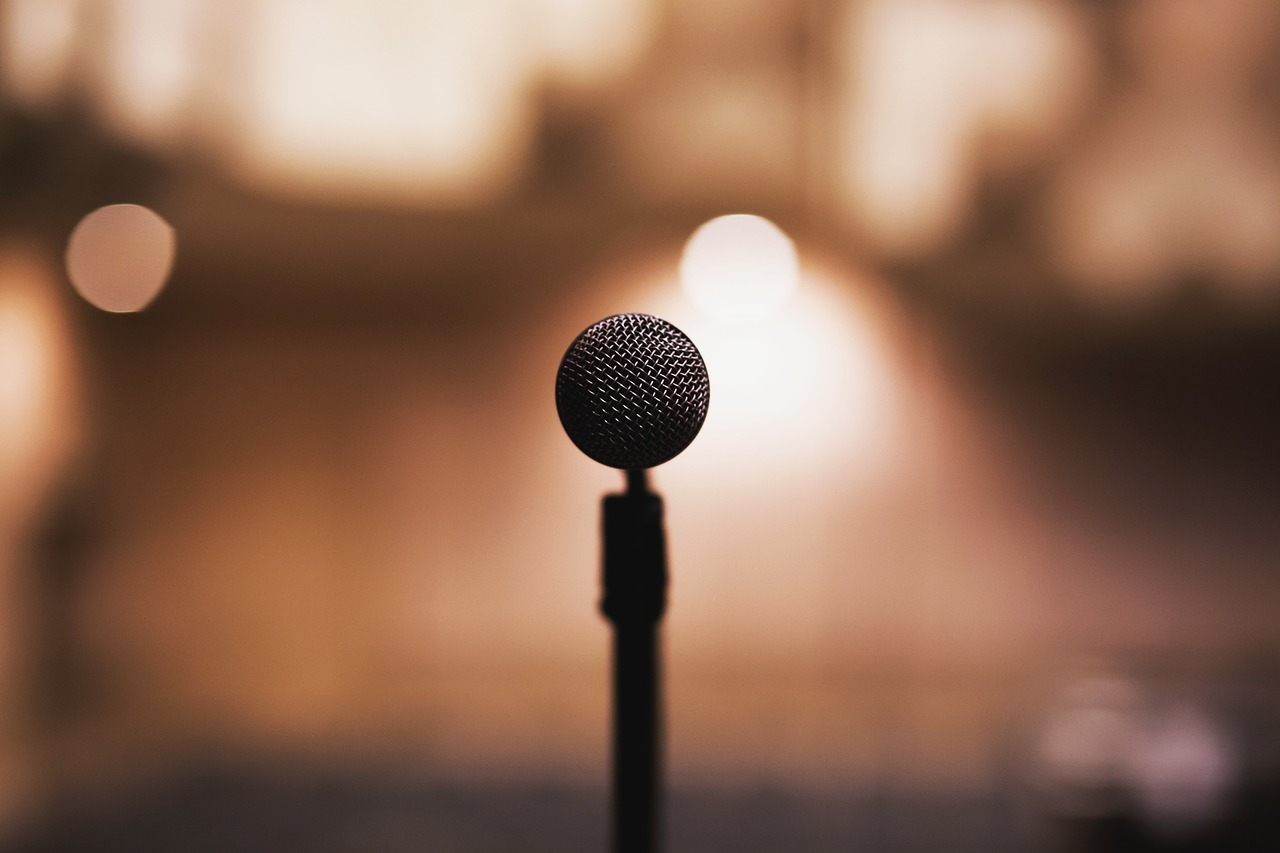
Collaboration Between Humans and AI
The collaboration between humans and artificial intelligence is reshaping the music landscape in ways that were once the realm of science fiction. Imagine a world where a musician sits down with an AI system, not just as a tool, but as a creative partner. This partnership is not just about efficiency; it's about innovation and exploration. AI can analyze vast amounts of data, learning from countless music genres and styles, and then generate ideas that even the most seasoned artists might not have considered. It's like having a co-writer who never runs out of inspiration!
One of the most exciting aspects of this collaboration is the ability to push creative boundaries. For instance, AI can suggest chord progressions and melodies that are outside the norm, encouraging musicians to step out of their comfort zones. This can lead to the creation of entirely new genres, blending elements from different musical traditions to produce something truly unique. Think of it as a musical alchemy—combining different elements to create a gold standard of sound.
Moreover, the integration of AI in music production has already led to some remarkable projects. For example, artists like Holly Herndon have collaborated with AI to create albums that explore the intersection of technology and human emotion. Herndon's AI, named Spawn, learns from her voice and generates new vocal sounds, allowing for a dynamic interplay between human input and machine learning. This kind of collaboration not only enhances creativity but also invites listeners to engage with music on a deeper level, as they contemplate the role of technology in the art form.
However, it's essential to recognize that while AI can generate ideas and sounds, the human touch remains irreplaceable. The emotional depth, personal experiences, and storytelling that artists bring to their music are aspects that AI cannot replicate. The best results often come from a harmonious blend where AI provides the groundwork, and the artist infuses it with their unique perspective. This collaboration can be likened to a dance: the artist leads, while AI follows, creating a rhythm that is both innovative and deeply personal.
As we move forward, the potential for collaboration between humans and AI in music production is vast. It opens up new avenues for creativity, allowing artists to experiment with sounds and styles that might have seemed daunting before. The key is to embrace this technology not as a replacement for human artistry, but as a powerful ally that can enhance and expand the creative process.
- Can AI replace human musicians? No, AI can assist in the creative process but cannot replicate the emotional depth and personal experiences that human musicians provide.
- How does AI contribute to music composition? AI can analyze existing music and generate new melodies, harmonies, and even lyrics, serving as a source of inspiration for artists.
- Are there any successful examples of human-AI collaboration in music? Yes, artists like Holly Herndon have used AI to create innovative music that explores the relationship between technology and human emotion.
- What is the future of AI in music? The future holds exciting possibilities, including new genres and creative processes that blend human artistry with AI capabilities.
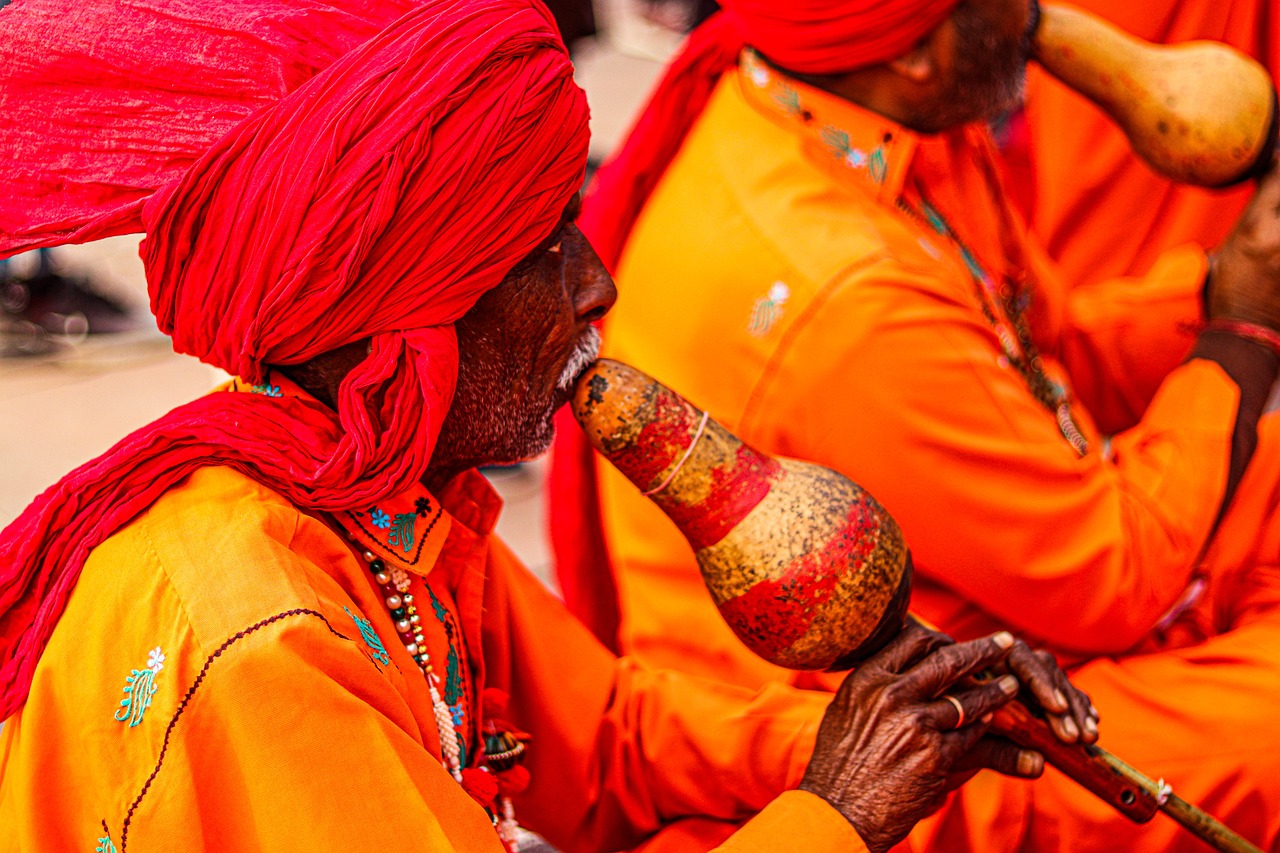
Ethical Considerations
The rise of artificial intelligence in music production brings with it a host of that cannot be overlooked. As AI technologies become increasingly capable of creating music, the question arises: who owns the rights to a song composed by a machine? This is not just a legal issue; it touches on the very essence of creativity and ownership in the music industry. Traditionally, a song's copyright is held by the songwriter, but when AI generates the music, the lines become blurred. Should the credit go to the programmer, the AI itself, or the musician who used the AI as a tool?
Moreover, the implications of AI on human creativity are profound. While AI can assist in generating ideas and compositions, there is a concern that it may lead to a homogenization of music. If many artists rely on similar algorithms, will we end up with a musical landscape that lacks diversity? The fear is that AI could stifle the unique human touch that makes music so powerful. After all, music is not just about notes and rhythms; it's about emotion, experience, and storytelling.
Another aspect to consider is the potential impact on employment within the music industry. As AI tools become more sophisticated, they might replace certain roles traditionally held by humans, such as sound engineers or mixing professionals. This raises the question: will the use of AI in music production lead to job losses, or will it create new opportunities for artists to explore different avenues of creativity? The answer is complex and likely varies by individual circumstances.
To navigate these ethical waters, it's crucial for the industry to establish clear guidelines and frameworks. Here are some key points to consider:
- Copyright and Ownership: Who retains rights to AI-generated music?
- Transparency: How transparent should AI algorithms be in their decision-making processes?
- Impact on Employment: What measures can be taken to protect jobs in the music industry?
- Creative Integrity: How can we ensure that AI enhances rather than diminishes human creativity?
As we move forward, it is essential for musicians, producers, and policymakers to engage in a dialogue about these issues. The integration of AI in music production is not just a technological advancement; it's a cultural shift that necessitates careful consideration of how we define creativity, ownership, and the future of artistic expression.
- What happens to copyright when music is created by AI? Copyright laws are still evolving to address AI-generated works, and current regulations may not adequately cover these scenarios.
- Can AI replace human musicians? While AI can assist in music creation, it lacks the emotional depth and personal experiences that humans bring to their art.
- How can artists protect their work when using AI? Artists should seek legal advice and understand the terms of use for AI tools to safeguard their creative contributions.
- Will AI change the way we experience music? Yes, AI can personalize music experiences and enhance live performances, offering new ways for audiences to engage with music.

AI-Driven Music Marketing
In the ever-evolving landscape of the music industry, is emerging as a game changer. Imagine a world where your favorite artists are not just promoted through traditional channels, but instead, their marketing strategies are powered by advanced algorithms that analyze listener behavior, preferences, and even social media trends. This is not science fiction; this is the reality we live in today!
With AI, music marketing has become more personalized and efficient. By leveraging vast amounts of data, AI can identify specific demographics and tailor marketing efforts to target audiences more effectively. For instance, algorithms can analyze streaming data to determine which songs are most popular among certain age groups or geographic locations. This allows artists and labels to focus their promotional efforts where they are likely to have the greatest impact.
One of the most exciting aspects of AI in music marketing is its ability to create dynamic playlists. These playlists are not static; they evolve based on real-time data. When an artist releases a new track, AI can analyze how listeners are responding and adjust the playlists accordingly. This means that if a particular song is gaining traction, it can be quickly promoted across various platforms to maximize exposure. It's like having a personal marketing team that works around the clock, constantly adapting to the audience's mood!
Furthermore, AI tools can also assist in crafting engaging content for social media. From generating catchy captions to suggesting the best times to post, AI can help artists connect with their fans more authentically. Imagine an artist being able to post content that resonates perfectly with their audience, all thanks to insights derived from AI. This not only boosts engagement but also builds a loyal fan base.
However, it's essential to recognize that while AI can optimize marketing strategies, the human touch remains irreplaceable. The best results come from a harmonious blend of AI insights and human creativity. Artists still need to tell their stories, convey emotions, and connect with fans on a personal level. AI can provide the tools, but the artistry and passion must come from the musicians themselves.
As we look towards the future, it’s clear that AI will continue to shape the music marketing landscape. Here’s a quick overview of how AI is transforming music marketing:
| Aspect | Traditional Marketing | AI-Driven Marketing |
|---|---|---|
| Targeting | Broad audience | Specific demographics |
| Content Creation | Static campaigns | Dynamic, real-time content |
| Engagement | One-way communication | Interactive and personalized |
| Data Analysis | Manual analysis | Automated insights |
In conclusion, AI-driven music marketing is revolutionizing how artists reach their audiences. By harnessing the power of data, artists can create more effective marketing strategies that resonate with listeners. As technology continues to advance, we can only expect these innovations to grow, making the music industry an even more exciting place for both artists and fans alike.
- How does AI improve music marketing? AI analyzes data to create personalized marketing strategies that target specific audiences effectively.
- Can AI replace human creativity in music marketing? No, while AI can optimize strategies, the human touch in storytelling and emotional connection remains essential.
- What are dynamic playlists? Dynamic playlists are adaptable playlists that change based on real-time data and listener preferences.
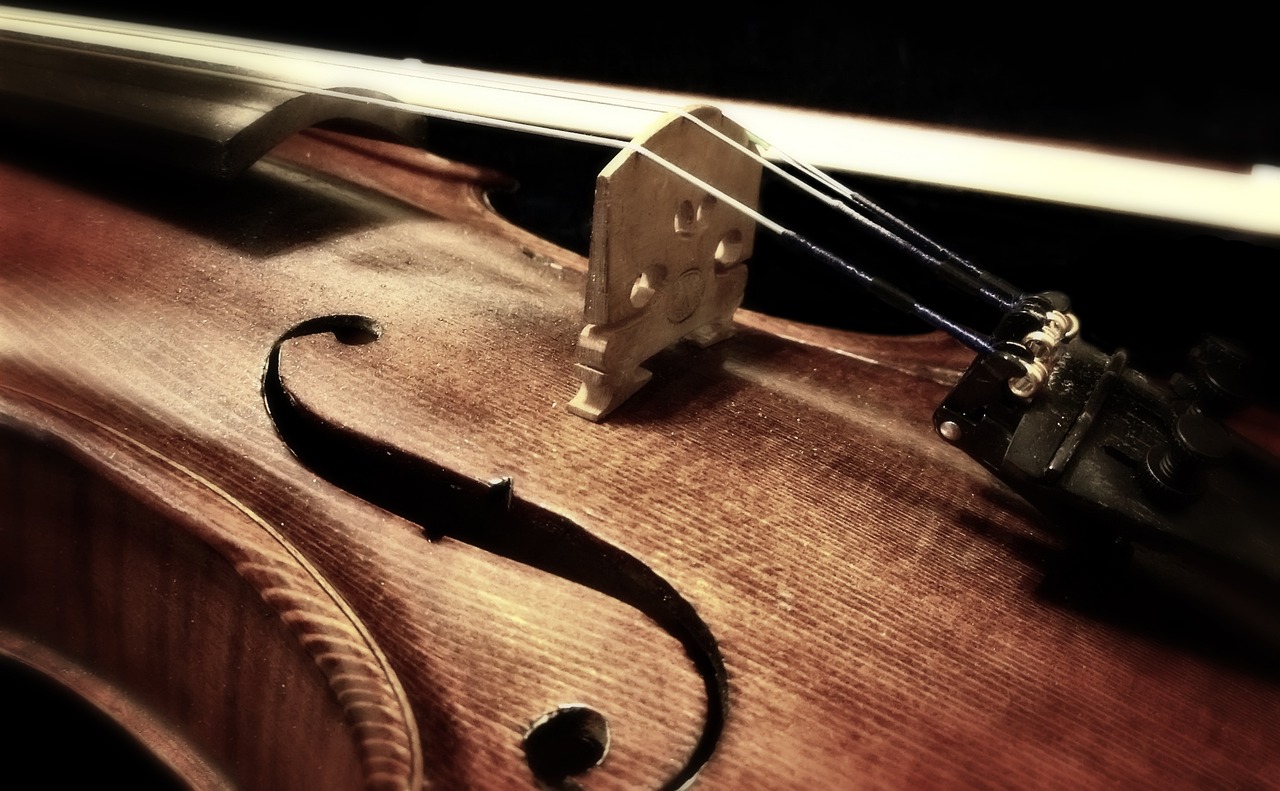
The Role of AI in Live Performances
When you think about live music, you might picture a band on stage, strumming guitars, and belting out lyrics to an adoring crowd. But what if I told you that artificial intelligence (AI) is stepping into this vibrant scene, transforming the way we experience concerts? The integration of AI in live performances is not just a gimmick; it's a revolutionary shift that enhances both the artist's presentation and the audience's experience.
Imagine attending a concert where the music adapts in real-time to the crowd's energy. AI algorithms can analyze audience reactions—like their clapping, singing, or even their social media interactions—allowing performers to modify their setlists on the fly. This level of interactivity creates an electrifying atmosphere, making each show unique. It's like having a musical chameleon on stage, changing colors based on the vibe of the room!
Moreover, AI is also enhancing the technical aspects of live performances. With sophisticated sound engineering tools, AI can help in real-time sound manipulation, adjusting audio levels and effects to ensure that every note hits just right. This means that even in large venues, where acoustics can be tricky, the sound can be optimized instantly, providing a crystal-clear auditory experience for everyone present.
Another fascinating application of AI in live performances is through visuals. AI-driven visual effects can sync with the music, creating stunning light shows and projections that respond to the rhythm and mood of the songs. Imagine a breathtaking display of lights and images that not only complements the music but also enhances the storytelling aspect of the performance. It's like witnessing a live music video unfold before your eyes!
Furthermore, AI can facilitate collaboration among artists. Musicians can use AI tools to generate backing tracks or harmonies during live shows, allowing for spontaneous creativity. This collaboration between human artists and AI can lead to unexpected musical journeys, making every performance a fresh experience. It's akin to having a creative partner on stage that never runs out of ideas!
However, while the potential of AI in live performances is exciting, it also raises questions about the authenticity of music. Will AI-generated sounds overshadow the raw talent of musicians? This ongoing debate highlights the importance of finding a balance between technology and artistry. The goal should be to enhance human creativity, not replace it.
In conclusion, the role of AI in live performances is a thrilling frontier that promises to redefine how we experience music. As artists and technologists continue to explore this synergy, we can expect concerts that are more interactive, immersive, and innovative than ever before. So, the next time you attend a live show, keep an eye out for the invisible hand of AI working its magic!
- How does AI enhance live performances? AI enhances live performances by enabling real-time sound manipulation, adapting music to audience reactions, and creating synchronized visual effects.
- Can AI replace musicians in live performances? While AI can assist in music creation and performance, it is meant to complement human artistry rather than replace it.
- What are some examples of AI in live concerts? Examples include AI-driven light shows, real-time audio adjustments, and AI-generated backing tracks that allow for spontaneous creativity.
- Is the use of AI in live performances controversial? Yes, it raises questions about authenticity and the potential overshadowing of musicians' talents, sparking ongoing debates in the industry.
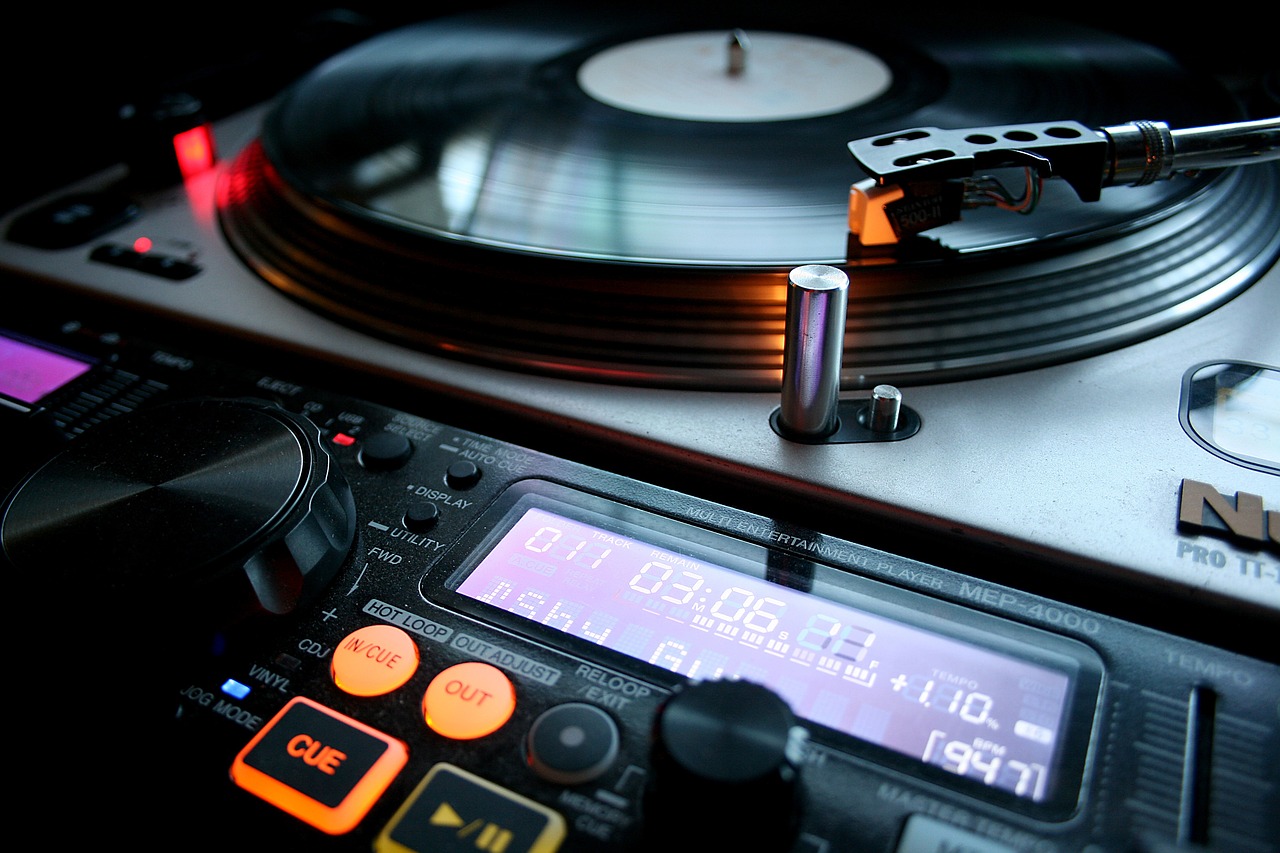
Future Trends in AI and Music
As we look ahead, the intersection of artificial intelligence and music production is poised to redefine the landscape of the music industry in ways we can only begin to imagine. With the rapid advancement of technology, we can expect to see a plethora of exciting trends that will shape the future of how music is created, produced, and consumed. One of the most significant trends is the emergence of AI-generated genres. Just as electronic music revolutionized sound in the late 20th century, AI is likely to pave the way for entirely new genres that blend human creativity with machine learning capabilities. Imagine a world where AI collaborates with artists to create a genre that has never existed before!
Moreover, the concept of interactive music experiences will gain traction. Artists may utilize AI to develop live performances that are not only engaging but also responsive to audience reactions. Picture a concert where the music changes dynamically based on the crowd's energy levels, creating a unique experience for every attendee. This level of interactivity could transform live music into a truly immersive event, blurring the lines between performer and audience.
Another trend to watch is the increasing use of AI in music education. Aspiring musicians can benefit from personalized learning experiences powered by AI algorithms that adapt to their individual learning styles and progress. This could mean a future where anyone, regardless of their background, can access high-quality music education tailored to their needs, thus democratizing music creation.
Furthermore, we can anticipate advancements in AI-assisted songwriting tools. These tools will not only help artists overcome creative blocks but also provide innovative suggestions that can lead to unexpected musical directions. By analyzing existing music trends and styles, AI could assist songwriters in crafting hits that resonate with contemporary audiences while still allowing for personal expression.
Additionally, the integration of virtual reality (VR) and augmented reality (AR) in music experiences is on the horizon. Imagine being able to attend a concert in a virtual space, where you can interact with the environment and even influence the music being played. This fusion of AI, VR, and AR could create entirely new platforms for music consumption, making it more accessible and engaging than ever before.
To summarize, the future of AI in music is not just about technology replacing human creativity; it's about enhancing it. As we embrace these trends, we must also remain mindful of the ethical considerations that accompany these advancements. The balance between innovation and preserving the essence of human artistry will be crucial as we navigate this exciting new frontier.
- Will AI replace human musicians? No, AI is designed to assist and enhance creativity, not replace it. Human emotion and artistry remain irreplaceable.
- How will AI impact music education? AI can personalize learning experiences, making music education more accessible and tailored to individual needs.
- What are AI-generated genres? These are new styles of music created through AI algorithms that blend different musical elements, potentially leading to entirely new sounds.
- How can AI improve live performances? AI can create interactive experiences that respond to audience engagement, making concerts more immersive and dynamic.
Frequently Asked Questions
- How is AI changing music composition?
AI is revolutionizing music composition by using algorithms that can generate original melodies and harmonies. This technology challenges traditional songwriting methods, allowing musicians to explore new creative avenues and expand their artistic horizons. Imagine having an intelligent assistant that helps you brainstorm musical ideas—it's like having a creative partner right at your fingertips!
- What advancements has AI brought to sound design?
AI has introduced groundbreaking advancements in sound design, enabling the creation of unique audio effects and instruments. These innovations allow producers and sound engineers to expand their sonic palettes, making it possible to craft sounds that were previously unimaginable. Think of it as a digital playground where the only limit is your imagination!
- Can AI really automate mixing and mastering?
Absolutely! AI tools are now capable of automating the mixing and mastering processes, helping producers achieve professional-quality sound with greater efficiency. This means that even those with limited technical know-how can create polished tracks, making music production more accessible than ever. It’s like having a seasoned sound engineer working alongside you, streamlining the entire process.
- How does AI personalize music experiences for listeners?
AI personalizes music experiences by analyzing listener preferences and behaviors to tailor playlists and recommendations. This enhances audience engagement and satisfaction, ensuring that listeners discover music that resonates with them. Imagine a personal DJ that knows your taste inside and out—now that’s a game changer!
- What does collaboration between humans and AI look like in music?
The collaboration between musicians and AI is evolving, resulting in innovative and captivating music. Artists are blending their creativity with machine learning to produce unique sounds and compositions. It’s like a dance where both partners bring their strengths to the floor, creating something truly special together.
- What ethical considerations arise with AI in music production?
As AI becomes more prevalent in music production, ethical considerations such as copyright, ownership, and the impact on human creativity and employment come into play. It raises important questions about who owns the music created with AI assistance and how it might affect the livelihoods of traditional musicians. Navigating these issues is crucial as we embrace this technology.
- How is AI reshaping music marketing strategies?
AI is transforming music marketing by utilizing data analytics and consumer insights to optimize promotional efforts. This allows artists and labels to reach their target audiences more effectively, ensuring that marketing strategies are data-driven and tailored to listener preferences. It’s like having a crystal ball that helps predict what will resonate with fans!
- What role does AI play in live performances?
In live performances, AI enhances the audience experience through interactive elements and real-time sound manipulation. This pushes the boundaries of traditional concerts, making them more immersive and engaging. Imagine a concert where the music adapts to the crowd's energy—AI is making that a reality!
- What future trends can we expect in AI and music production?
Future trends in AI and music production may include advancements in technology that lead to the emergence of new genres and innovative production techniques. As AI continues to evolve, it will likely redefine the music industry landscape, opening up new possibilities for artists and listeners alike. The future is bright, and the possibilities are endless!

